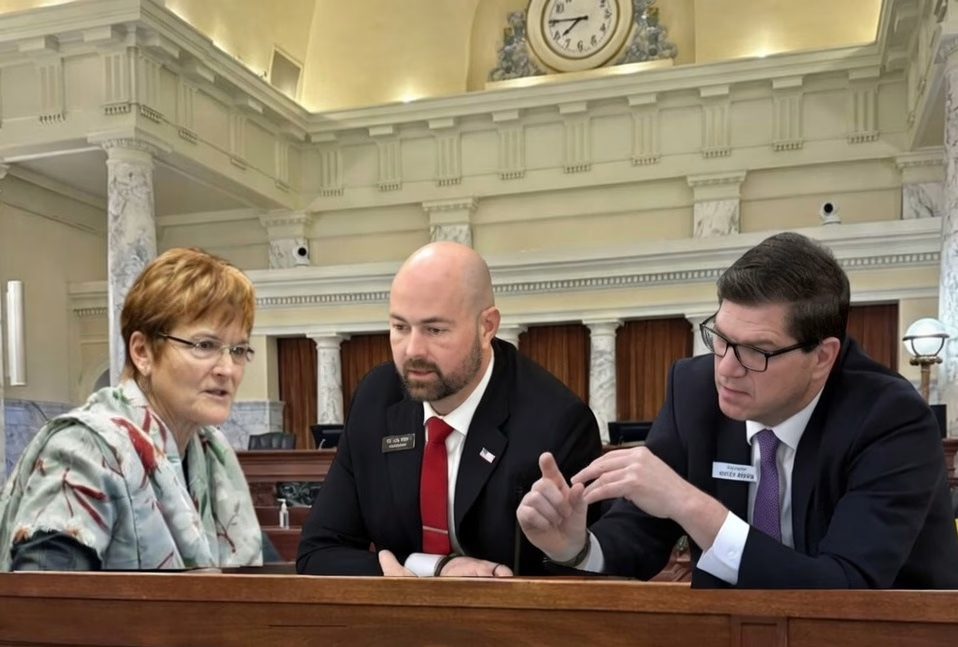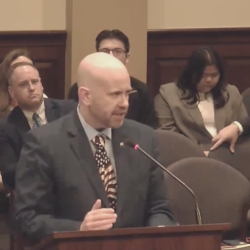Over the last few weeks, two bills wound their way through the Senate. One was sponsored by a Republican, the other by a Democrat. One involved cell phones, the other contraception. One passed by eleven votes, the other by only three. Both bills saw opposition from conservative Republicans, but were supported by all seven Senate Democrats.
Senate Bill 1234 was introduced by Sen. Melissa Wintrow, the Minority Leader. This bill would force insurance providers to cover six months of contraception at a time, rather than three. This kind of bill is a reminder that once you allow government to intrude partway into your private affairs, it will always find good reasons to continue its micromanagement.
Several Republicans argued that we should allow the market to decide how much birth control insurance companies cover at a time, but Wintrow suggested that the market needs guidance from government. She argued that if one company were to do this, then it would lead to inefficiencies, whereas if government pushed them all at once it would be an easier transition.
Democrats supporting more government regulation is a given, but several Republicans joined them. Sen. Abby Lee said she supported this bill because men and women are different. Sen. Chris Trakel said that military health insurance already covered six months, so civilian insurers should be made to as well.
In the end, S1234 passed the Senate 19-16, as twelve Republicans joined the seven Democrats to push it across the line.

A few days later, the Senate considered Senate Bill 1253. Sen. Kevin Cook has been pushing a cell phone porn filter bill for a while. A similar bill introduced last year was defeated on the Senate floor 17-18 as six of the seven Democrats voted against it. They typically vote against anything that restricts speech or expression of any kind, especially when it comes to pornography.

However, when the bill came before the Senate a few days ago, it passed 23-12. On the Republican side, Sens. Lori Den Hartog and Chris Trakel voted no on the new bill after voting yes last year, while Sens. Treg Bernt and Geoff Schroeder flipped to yes. The latter two joined all six Democrats who had opposed the bill last year in supporting it this year.

What changed? What convinced those six Democrats to switch sides? Does it have anything to do with Republican support for S1234?
Perhaps.
Sources inside the Capitol have said that Sen. Kevin Cook visited a meeting of the Democratic caucus to lobby for his cell phone bill. If that’s true, did he offer to support Sen. Wintrow’s contraception bill in return?
I don’t know, and I tread carefully when dealing with rumors. But it would explain a few things.
In theory, legislating is simple. A lawmaker can draft a bill, present it to a committee, and then ask his or her fellow legislators to support it. If a majority of each chamber agrees, then it goes to the governor’s desk. His signature turns that bill, which started as an idea, into the law of the land.

In reality, there’s more to it. It’s not quite so cut and dried as it might seem in a high school civics class. Legislators are human beings, and are subject to the same office politics as any other job. We like to think that the Legislature is only concerned with ideas, but that’s unfortunately not the case. There are personalities at play, egos, and above all, a desire for power.
While some good legislators go to the Capitol with the intention of creating good policy, too many people go there only looking to increase their own power. They trade votes like poker chips, hoping to gain support for their own bills or simply expand their own influence.
Over and over again we see moderate Republicans make common cause with Democrats to defeat conservative legislation and maintain the power of the political establishment. The budget coup was only the latest example of this unholy alliance, and one of the few times in which the establishment was defeated.
The only thing that can put an end to this cynical system is for more citizens to get involved in the process. Right now, our legislators are surrounded by a cacophony of lobbyists and political activists, and it can be hard to find the signal within that noise. If every legislator had regular contact with active constituents who spend their time learning the details of the most important bills, then perhaps they would vote differently. If they knew that horse trading came with a price, perhaps they would hesitate to spend their votes like poker chips.
Head over to Substack for a short paid subscriber note. Not subscribed? Click here to do so!
About Brian Almon
Brian Almon is the Editor of the Gem State Chronicle. He also serves as Chairman of the District 14 Republican Party and is a trustee of the Eagle Public Library Board. He lives with his wife and five children in Eagle.













